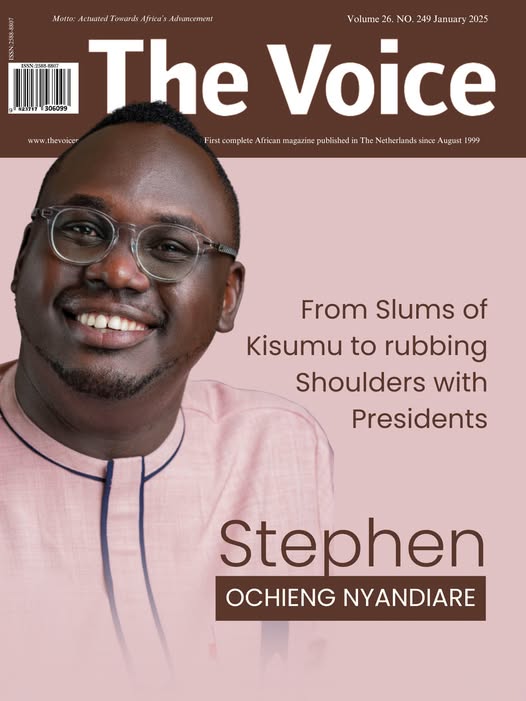Internet Shutdown On June 7th Cost Liberia Over U.S.$100 Million

By Robin Dopoe
President George M. Weah is resolute in dealing with any action or actor that threatens the existence of his government that was brought into power by the popular vote.
On Friday, June 7, Liberians woke up to the rather startling reality that their primary source of information — social media — had been blocked. At first not many knew the government to be the culprit, as some times major national events and weather patterns can affect internet access. It had rained that morning. However, as confirmed reports began to filter through that the Government of Liberia, ahead of the protest gathering that day organized by the Council of Patriots, had masterminded the squeeze on internet activity “as a security measure” Liberians began to search for alternatives.
The social media blockade by the Weah Administration became the first in the history of Liberia by a sitting government.
The blocking of social media sites which stated from 6 a.m. to 6 p.m., on June 7, 2019, never happened during the administration of Weah’s predecessor, Ellen Johnson Sirleaf, whose administration experienced several demonstrations from President Weah’s party, which was then in the opposition.
According to Quartz, internet shutdowns are becoming common among governments in Africa. Liberia joins a running list of countries including Zimbabwe, Chad, Uganda and Cameroon, whose governments have shutdown their internet. In 2018, there were 21 such shutdowns on the continent, featuring Sierra Leone, Togo, Sudan and Ethiopia, among others.
Netblocks, an international organization that monitors internet disruptions and shutdowns during the demonstration, confirmed on Friday, June 7, that social media sites including WhatsApp, Instagram, Snapchat, Facebook, Google’s Gmail service and the website of The Associated Press were among the sites affected to quell the protests.
Netblocks added that the disruptions affected ordinary operation of the social media platforms and have raised concerns of a state order to restrict the Save the State protests in the Liberian capital Monrovia.
According to the NetBlocks Cost of Shutdown Tool, which estimates the economic impact of an internet disruption, mobile data blackout or app restriction, the 12 hours blockade of social media platforms cost internet service providers and the government to lose at least US$109,913 or LD$17,781,180. The cost breakdown is gathered using indicators from the World Bank, ITU, Eurostat and U.S. Census.
Meanwhile, the Daily Observer learned that the Government of Liberia spent at least US$650,000, on security preparations for the June 7 protest, far outweighing the cost incurred by the internet shutdown. 40 percent of said amount was disbursed in Liberian dollars.
The blocking of social media platforms, according to security sources, was a measure instituted by the government for public safety, national security and to stop the dissemination of rumors and illegal content.
Eugene Nagbe, Minister of Information, Cultural Affairs and Tourism said social media platforms were temporarily shut down because of “security concerns.”
“We are not saying that the protesters were carrying out things detrimental to the nation, but the national security apparatus said there were threats to the country,” Min. Nagbe told CNN during the time of the protest.
The protest, organized by the Council of Patriots, a conglomeration of citizens, civil society activists, youth workers and major opposition political parties, aimed to call government’s attention to public dissatisfaction with the spiraling economy and corruption in the country. The protest turne out to be remarkably peaceful.
In reaction to the blocking of social media platform, Sen. Sando Johnson of Bomi County said the move by the government was complete censorship on freedom of expression, which violates the people’s rights.
“Accessing information and exercising freedom of expression — especially in times of protest — is essential to help journalism, human rights defenders, and demonstrators to access life-saving information [and] enable family and friends to stay connected,” Sen. Johnson noted.
Speaking of free speech, President Weah, during the dedication of the modernized Duport Road Market, announced that anyone caught insulting the President would be “dealt with.”
How do social media platforms blocking occur?
An ICT professional, who asked not to be named, said social media platforms can be blocked when the government requests internet service providers (ISPs) to limit its subscribers’ access.
According to the ICT professional, throttling, a method which severely limits traffic to specific sites, giving the impression that the service is slow, thereby discouraging access, was the method used by the government to deny Liberians access to social media sites.
Despite the blocking of the internet, several Liberians bypassed the restriction by using virtual private networks (VPNs) to access social media sites to post about the demonstration and stream it live online.
Meanwhile, Jeremiah Swen, one of the several observers from the Alliance for Justice in Liberia, said the interfering with internet access and digital communications, which have never happened in Liberia before is an attempt at censorship and information control.
Swen added: “A responsible government does not deny its citizens access to social sites, no matter the situation. The government was in total error by blocking social media sites across the country.”
In a related development, the Daily Observer learned from eyewitnesses that the government through the Liberia National Police, during the demonstration on June 7, denied several would-be protesters of their constitutional rights to protest.
Eyewitnesses added the LNP started the move through various entry points to Monrovia by asking people to display their citizen ID cards before being allowed to enter the vicinity of the protests in central Monrovia.





